Yeovil People
Thomas Frederick Hardyman
Foundry Manager
Thomas Frederick Hardyman, known as Fred, was born on 18 September 1884 at Ilkeston, Derbyshire. He was the son of butcher Fred Hardyman and Sarah née Pollard who were married in the late spring of 1884 at Basford, Derbyshire. In the 1891 census the small family were listed at Belgrave, Leicestershire.
His early education was at Ilkeston, but continued at Leicester. He served his apprenticeship with the nearby Stanton Ironworks Co Ltd and took a keen interest in foundry work, blast furnace practice and the manufacture of pig iron. While at Stanton, he was employed on the production of tubing plates for the London underground, as well as large pipes and a variety of other heavy castings.
In the 1901 census, he was living with his widowed grandmother Jane Hardyman, at The Fields, Nottingham Road, Ilkeston. 16-year old Fred gave his occupation as an iron pipe moulder.
He later moved to Messrs Ashwell & Nesbit of Leicester, where he was engaged on the production of castings for heating and ventilating engineering. He next moved to Messrs Russell of Leicester, working in the production of castings for boot and shoe machinery. He then moved to work at the Brush Electrical Company at Loughborough where his work included castings for large steam turbines. A move to Nottingham followed, to work on the production of castings for lace-making machinery, before moving on to Stockport where he worked on castings for cotton mill equipment, gas engines and automobiles.
With this experience behind him, Fred moved back to the area he grew up in and, though still a young man, he opened up a non-ferrous foundry in Leicester on his own account. He ran his own foundry until May 1909, when he moved to Yeovil to join Messrs Petters Ltd, to build, equip and open up in Yeovil their foundry for making castings for the Petter oil engines. His salary was an impressive £312 per month (around £32,000 per month, or £384,000 per annum, at today's value).
Fred Hardyman came to Yeovil and initially stayed at the Alexandra Hotel on the corner of Station Road. The hotel was owned by William Thomas Bruce (b1869) who died on 20 November 1909, aged 39. He was buried at Holy Trinity church on 24 November 1909. After his death, his 28-year old widow Ethel Emma Bruce, née Winsor, continued running the hotel. Ethel was the eldest child of mechanical engineer Albert George Winsor (1859-1908) and Emma Jane née Hallett (1858-1932). Ethel's younger brother was Albert Percy Winsor, known as Percy.
Love blossomed between the foundry manager and the young widowed hotel proprietress, and on 28 January 1911, 26-year old Fred married 28-year old Ethel, at Yeovil. They were to have four daughters; Mary Evelyn (b1911), Margaret Jenny (1912-1965), Phyllis Ethel (1914-1999) and Joan Perrin (1918-2003). The 1911 census listed Fred and Ethel living at the Alexandra Hotel. Ethel, unusually, was listed as the head of the family and gave her occupation as hotel proprietress and Fred was listed as 'husband' and gave his occupation as a foundry manager. Living with them was Ethel's widowed former mother-in-law Charlotte Bruce, an ostler and a domestic servant. There were four resident boarders. They were, however, soon to move to Grove Avenue. Later, they moved to Bayford Lodge, Summerlands (see Gallery).
Percy Petter, in 'The Story of Petters Limited', wrote; "By the beginning of the year 1913, the whole of the three acres of land at Reckleford which had originally been my father's garden, was occupied by buildings and necessary yard spaces, yet it was necessary at times to work night and day in order to supply the ever-increasing demand for Petter engines... Our foundry was in constant difficulties through inability to supply the large quantity of castings we required and Mr Hardyman the manager urged me to consider the possibility of finding a site for a much larger foundry with, if possible, sidings on the railway. I personally was not very eager to adopt his proposal. One day, however, he asked me to accompany him to inspect a field at West Hendford which he considered to be ideal for the purpose. I went with him past the works of the Ham Hill Stone Co. along a narrow lane which terminated in high wood doors. We climbed up on to these and looked over on a fine piece of meadow land sloping up gradually from the Great Western Yeovil and Taunton branch railway... my fellow directors having carefully considered the matter, we eventually decided to go ahead with the erection of the new Foundry.
Mother and I with Norah and Kathleen had gone down one Saturday afternoon in 1913 to cut the first sods for the foundations of the new Foundry and mother chose the name of Westland, which has since become famous all over the world.
The new Foundry, one of the largest in Great Britain, was ready for occupation early in 1914, and the first casting was poured."
In 1915, Fred joined the Yeovil Freemason's Lodge of Brotherly Love, at which time he gave his profession as an engineer..
The 16 June 1921 edition of Engineering Production, wrote of Fred Hardyman's efforts at Westland; "He seems to have taken the fullest advantage of the fact that it was possible to embody his ideals of foundry organisation from the commencement, though the early days of the new venture were not without difficulty. Thus it soon became apparent that a great obstacle to the establishment of a high-class foundry in Yeovil was the class of labour available, and he was faced with the problem of converting agricultural men into skilled foundry workers. This difficulty was overcome, however, without importing labour from other districts, and the men acquired the degree of skill necessary to produce first-class castings."
Fred Hardyman left Westlands in 1928, to start his own foundry at Mickleover, Derbyshire. The 1939 England and Wales Register recorded Fred, Ethel and their daughter Joan at Repton, Derbyshire. Fred gave his occupation as a 'Foundry (Iron) Manager'.
Ethel died in Chard, on 15 June 1950, aged 66. Fred died in the summer of 1963, aged 73, and was buried at Yeovil.
Many thanks to John Green for much of the above information.
GALLERY
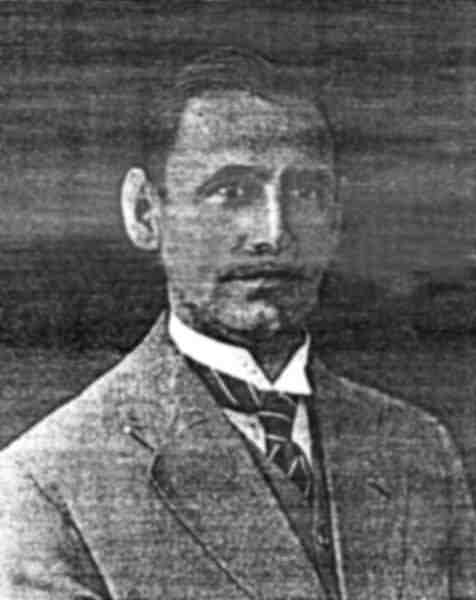
Thomas
Frederick
'Fred'
Hardyman
1884-1963
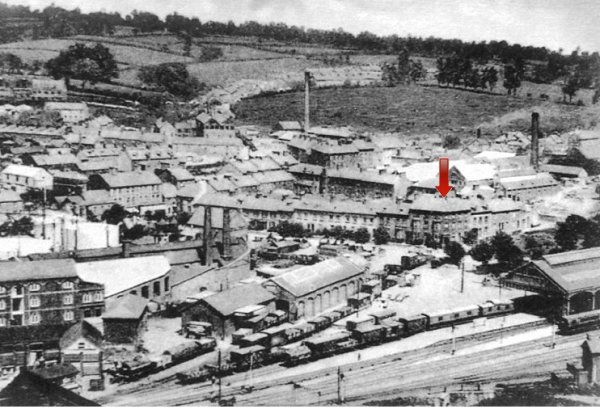
A panorama taken from Summerhouse Hill around 1910 showing the Alexandra Hotel, arrowed, in its setting at the edge of the town and its proximity to the town railway station. This was around the time that it was being run by Ethel. Notice, however, the proximity of the open countryside to the town - all those fields are now built on.
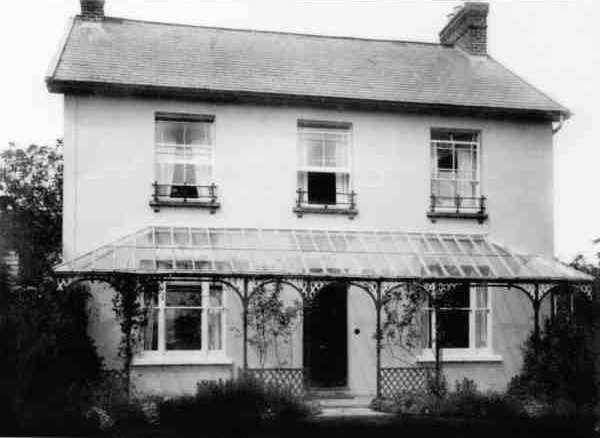
Courtesy of
John Green
Bayford Lodge, Summerlands, was the home of Fred and Ethel for a while.
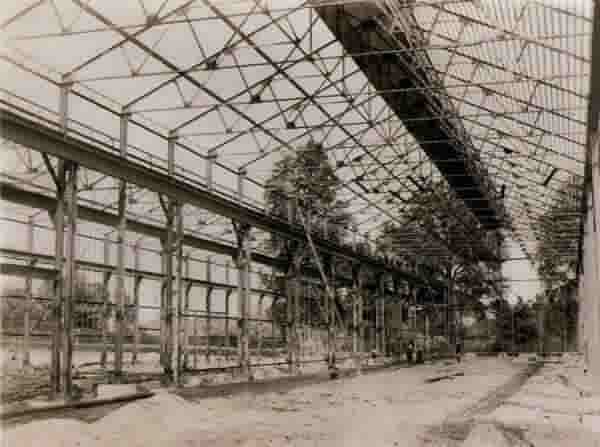
Courtesy of
John Green
The Westland Foundry, under construction in 1913.
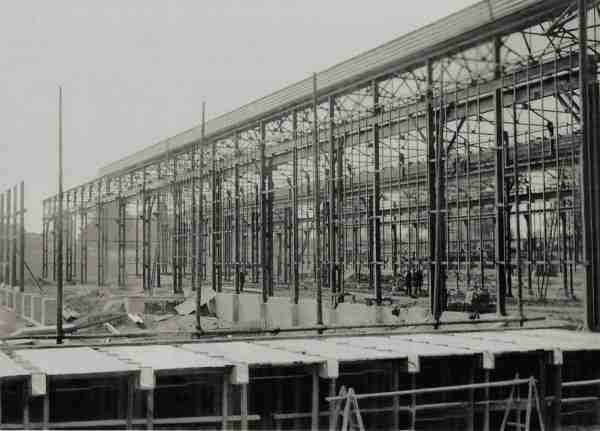
Courtesy of
John Green
... again, the Westland Foundry, under construction in 1913. Note the scale of the building by the three people in the photograph.
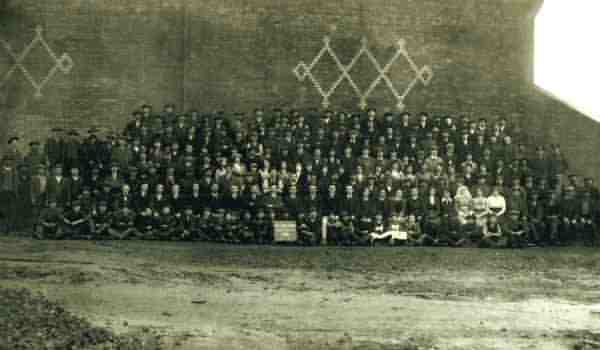
Courtesy of
John Green
The large number of workers employed in the Westland Foundry gather for a group photograph on 16 January 1919.
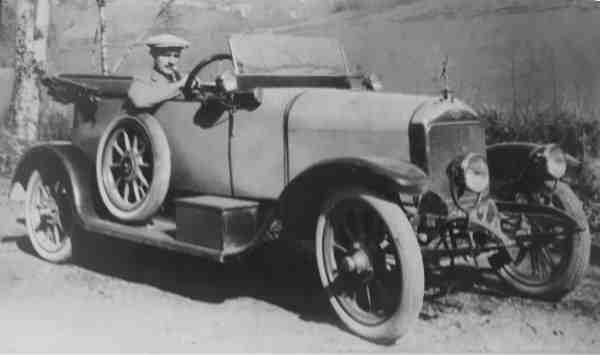
Courtesy of
John Green
Fred Hardyman in his Mercury car, around 1920.
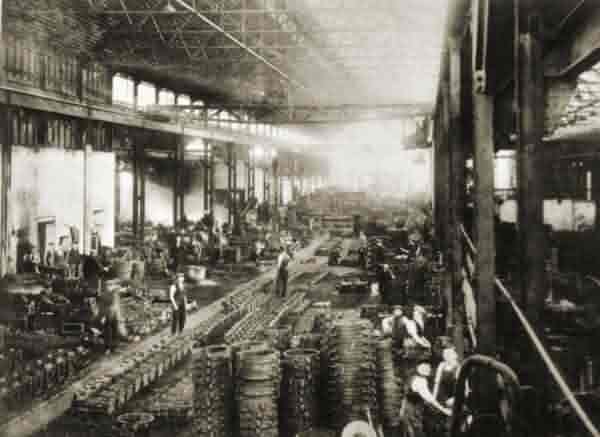
A general view of the foundry, photographed in 1934.